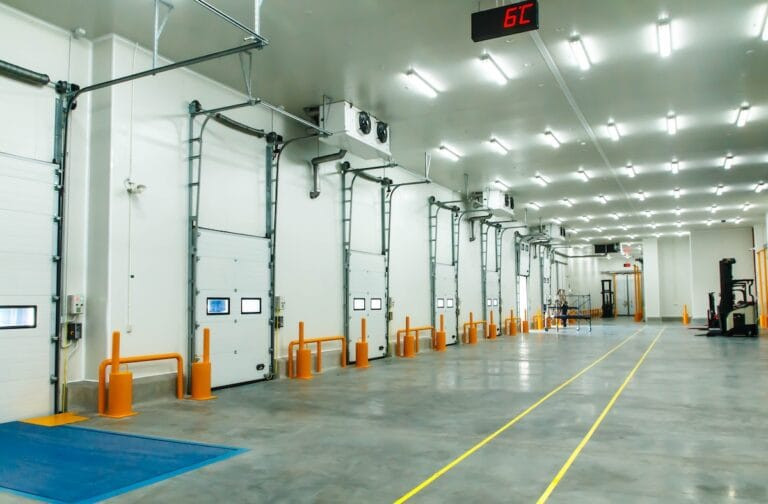The pandemic really transformed the cool chain landscape. One of the biggest changes was the surge in demand for temperature-sensitive logistics, particularly with the distribution of Covid-19 vaccines.
Vaccines like Pfizer-BioNTech required ultra-low temperatures, which was a logistical challenge. Suddenly, companies had to scale up their cold chain infrastructure almost overnight. It wasn’t just about having freezers – it was about creating an entire global network that could handle and transport these vaccines safely and efficiently.
There were also repeated reports in the news of large quantities of vaccine doses becoming unusable due to inadequate refrigeration and monitoring. This has left a lasting impression on the population of how important a functioning cold chain is and has certainly ensured that the quality of cold chain processes has been questioned again.
“The growth has been remarkable, even beyond what we saw during the pandemic. The demand for temperature-sensitive services has been on a steady rise for a few reasons: First, there’s the pharmaceutical industry,” Pascal Hoffmann, Head of Marketing at Tec4Med, stated. “The pandemic highlighted the need for specialised cold chain logistics with the vaccine rollout, but even before that, there was increasing demand for biopharmaceuticals, clinical trials, and gene therapies, which all require precise temperature controls. Now, with more research and development in these areas, the need for specialised cool chain services has only continued to expand.”
“To capitalise on the growing opportunities in airfreight, the industry is increasingly turning to automation and risk mitigation as essential strategies for optimising operations,” Brice Marion, Head of Sales at FriggaTech, explained. “Real-time monitoring solutions provide airfreight operators with the tools to track shipments more efficiently and ensure compliance with global regulations, which are becoming stricter, especially for temperature-sensitive products like pharmaceuticals and perishables.”
Manual to modern
The industry still often sees manual processes, some of which are inaccurately executed and inefficient in terms of time. This not only entails high costs but also an increased risk of human error.
To stay ahead, companies should focus on operational efficiency by streamlining processes and reducing these bottlenecks. Investing in automated systems for cold chain management can minimise errors and lower costs significantly, while creating room for the staff to focus on other tasks.
“Digital developments have significantly enhanced visibility in the cool chain through advanced real-time monitoring and data analytics,” Hoffman highlighted. “With IoT sensors and cloud-based platforms, companies can track temperature, humidity, and location continuously and seamlessly throughout the whole supply chain. This real-time data also provides transparency to customers and the level of visibility reassures customers that their products are handled with the utmost care, maintaining quality and safety from start to finish.”
“One way we’re addressing these challenges is through the development of advanced tracking devices. For instance, Frigga’s ultra-thin trackers equipped with non- lithium batteries are gaining popularity due to their compatibility with airline regulations, allowing for seamless approval and use across major airlines,” Marion added.
Clear and detailed
Companies need detailed, accurate records to prove compliance, utilising traceability and maintaining documentation. Automated data logging and cloud-based access aid companies in tracking and storing all temperature data, shipment conditions, and events in real-time. This makes audits much smoother and helps businesses remain fully compliant with regulations.
“By integrating smart sensors capable of predicting potential issues before they occur, airfreight operators can significantly reduce spoilage and improve operational efficiency. This proactive approach helps to minimise delays and maintain the integrity of high-value goods throughout their journey,” Marion outlined.
“We recognised the need for flexibility and scalability. Whether it’s a small clinical trial or large-scale distribution, Tec4med’s modular systems can be easily adapted to fit different needs and are fully scalable and ready to use within a few minutes,” Hoffman highlighted. Tec4med’s solutions are fully validated and calibrated, ensuring reliable performance from start to finish, even in complex and global supply chains. By addressing these core challenges, Tec4med helps companies streamline their cold chain processes and reduce compliance risks.”





